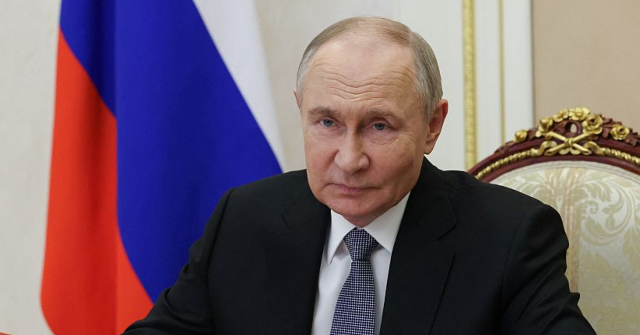Russia is reportedly prepared to use its position as a permanent member of the U.N. Security Council (UNSC) to protect Iran from “snapback” sanctions, which European leaders are threatening to invoke because Iran has failed to comply with its obligations under former president Barack Obama’s 2015 nuclear deal.
Russia’s First Deputy Permanent Representative to the United Nations, Dmitry Polyanski, confirmed at a press conference on Tuesday that Russia is circulating a draft proposal at the U.N. to block sanctions against Iran.
“Russia and China want to give more breathing space for diplomacy and provide some possibilities for an active quest for a diplomatic solution to this issue,” Polyanski said.
“The choice of the international community should be in favor of peace and diplomacy, not in favor of war — and that is what our draft is about,” he said, strongly implying that anyone in favor of punishing Iran for noncompliance is attempting to start a war with the Islamic Republic.
The push for snapback sanctions comes from France, Germany, and the United Kingdom, collectively known as the “E3.”
Unless the extension demanded by Russia is granted, the 2015 Joint Comprehensive Plan of Action (JCPOA) — which was never ratified by treaty — will “expire” on October 18, 2025. The United States withdrew from the agreement during President Donald Trump’s first term.
Trump accused the Iranians of cheating on the JCPOA and using the gigantic windfall of cash from the end of sanctions to finance terrorism around the world. The E3 nations have grudgingly come around to Trump’s view after struggling for years to keep the Iran nuclear deal alive. For their part, the Iranians claim they did not receive all of the money and benefits they were promised under the deal.
In June 2025, after years of pushing the Iranians for full transparency and demanding an explanation for traces of uranium found at undeclared nuclear sites, the International Atomic Energy Agency (IAEA) formally declared Iran to be in breach of its obligations under not just the JCPOA, but also the Nuclear Non-Proliferation Treaty (NPT).
The IAEA censured Iran for the first time in 20 years, accusing Tehran of “many failures to uphold its obligations since 2019 to provide the agency with full and timely cooperation regarding undeclared nuclear material and activities at multiple undeclared locations.”
The IAEA’s action almost immediately triggered airstrikes by Israel, and later the United States, to destroy Iran’s uranium enrichment facilities. The E3 wants to use the threat of snapback sanctions to get Iran back into compliance, with a final decision coming in the next few days.
“We are going to see whether the Iranians are credible about an extension or whether they are messing us around. We want to see whether they have made any progress on the conditions we set to extend,” an E3 official told the UK Guardian on Tuesday after a meeting in Geneva.
Iranian President Masoud Pezeshkian called Russian President Vladimir Putin on Monday to plead for Russia’s protection against sanctions, and Putin appears ready to deliver.
On Wednesday, Iran allowed IAEA inspectors back into the country for the first time since July, a largely symbolic gesture that seems intended to make Iran look reasonable.
Radio Free Europe (RFE) noted that Iran’s primary uranium enrichment facilities at Fordow, Nataz, and Isfahan may remain “off-limits,” making the presence of IAEA inspectors purely theatrical. All three of those locations were bombed by the United States in June.
Iran program director Benhan Taleblu of the Foundation for Defense of Democracies (FDD) told RFE it was “highly unlikely” the E3 would delay the snapback sanctions, unless “inspectors can fully resume monitoring and if there’s real political will in Tehran for diplomacy.”
Read the full article here


